- Home
- Sarah Woodbury
The Worthy Soldier Page 26
The Worthy Soldier Read online
Page 26
Then Cadell, King of Deheubarth and Hywel, edling of Gwynedd, joined forces with Gilbert and his vassals, the Fitzgerald brothers, against the Fleming, Walter FitzWizo. Thus, Stephen lost all of south Wales too.
As to the treasure, Empress Maud had been using Oxford Castle as her seat in the war against Stephen. When she had to flee in the middle of winter—some say in her nightdress—she lost men and wealth, the outcome of which has been lost to time. That Prince Hywel recovered some of it is a product of my imagination.
And yes, it’s true: the Richard de Clare in The Worthy Soldier is the same Richard de Clare who, in 1169, became the leader of the first Norman conquest of Ireland (see Outpost in Time from my After Cilmeri series). His vassal, Maurice Fitzgerald, went with him and was the founder of the powerful Irish Fitzgerald clan.
In addition, King Cadell’s younger brother, Rhys, who is only fifteen in 1147, in due time becomes the Lord Rhys, ruler of Deheubarth and the most powerful lord in Wales until the rise of King Owain Gwynedd’s grandson, Llywelyn Fawr, in the thirteenth century.
To sign up to be notified whenever I have a new release, please see the sidebar on my web page:
http://www.sarahwoodbury.com/
You can also connect with me on Facebook:
https://www.facebook.com/sarahwoodburybooks
Read on for the first chapter of The Last Pendragon, the first novella in The Last Pendragon Saga available for free! at all retailers:
Rhiann knows that demons walk the night. She has been taught to fear them. But from the moment Cade is dragged before her father's throne, beaten and having lost all of his men to her father's treachery, he stirs something inside her that she has never felt before. When Cade is revealed to be not only Arthur's heir but touched by the sidhe, Rhiann must choose between the life she left behind and the one before her--and how much she is willing to risk to follow her heart.
The Last Pendragon is the first novella in The Last Pendragon Saga.
Sample: The Last Pendragon
Chapter One
Aberffraw, North Wales,
Kingdom of Gwynedd
655 AD
Rhiann
The smell of smoke and sweat filled the hall, mingling with the overlay of roast pig and boiled vegetables. More soldiers than usual sat at the long tables, here to celebrate their victory. The mood was subdued, however, not the wild jubilation that sometimes accompanied triumph and caused Rhiann’s father to lock her in her room in case he couldn’t control the men.
Today, the drinking had begun in earnest the moment the men had returned from the fight and settled into a steady rhythm Rhiann had never quite seen before. Here and there, a hand clenched a cross hung around the neck or an amulet against the powers of darkness, that should her father see, might mean death for that soldier. For a man to ask the gods for protection instead of the Christ meant he was less afraid of the King of Gwynedd than someone, or perhaps something, else. Rhiann had been afraid of her father her whole life and couldn’t imagine fearing another more, not even the demons that were said to walk the night, hungering for men’s souls.
Perspiration trickled down the back of Rhiann’s dress, made of the finest blue wool that her father had acquired in trade from merchants on the continent. Welsh wool, while plentiful, was courser than that of sheep raised in warmer climates. The Saxon threat was enough to keep the Cymry within their own borders, but the sailors still took to the western seas, bringing in trade goods of wine, finely wrought cloth, metalwork, and pottery.
For once, Rhiann’s father, King Cadfael of Gwynedd, had eaten little and drunk less. For her own preservation, Rhiann had always been sensitive to his moods and noted the exact instant his disposition changed. He shifted in his seat and rolled his shoulders, like a man preparing for a battle instead of the next course of his meal. A moment later, the big, double doors to the hall creaked open, pushed inward by two of the men who always guarded them. The rain puddled in the courtyard behind them, and Rhiann wished she were out in it instead of here—anywhere but here.
She kept her place, standing behind and to the left of her father’s chair. It was her duty to tend to his needs at dinner as punishment for her refusal to marry the man he’d chosen for her. Rhiann hadn’t turned the man down because he didn’t love her, or she him; she knew better than to wish for that. It was a hope for mutual respect for which she was holding out. But even this seemed too much to ask for an unloved, bastard daughter. Consequently, Rhiann spent her days as a maidservant, albeit one who worked above stairs. She didn’t regret her station. As the months passed, she’d come to prefer it to sharing space at the table with her father and his increasingly belligerent allies.
Silence descended on the hall as two of King Cadfael’s men-at-arms entered, dragging between them a young man whose head fell so far forward that no one could see his face. He was visibly collapsed, with his arms dangling over the guards’ shoulders and his feet trailing behind him. As the trio progressed along the aisle between the tables toward the king’s seat, the youth seemed to recover somewhat, getting his feet under him and managing to keep up with their strides. As he came more to himself, he straightened further.
By the time he reached the dais on which Rhiann’s father sat, he was using the men-at-arms as crutches on either side of him. Because he was significantly taller than they, it was even as if he was hammering them into the ground with his weight. His footsteps rang out more firmly with every stride, echoing from floor to ceiling, matching the drumming of Rhiann’s heart. The closer he got to her father, the harder it became to swallow her tears. By the souls of all the Saints, Cadwaladr, why did you come?
Rhiann had been her father’s prisoner her whole life, unable to escape his iron hand. The high, wooden palisade that circled Aberffraw had always signified prison walls to her, rather than a means to protect her from the darkness beyond. This young man had grown up on the other side of that wall. He’d not had to enter here. He’d had a choice, but had recklessly thrown that choice away and was now captive, just as she was. She felt herself dying a little inside with every step he took as he approached Cadfael.
The young man, Cadwaladr, the last of the Pendragons, fixed his eyes on those of the woman sitting beside the King. She was Alcfrith, Cadfael’s wife, taken as bride after the death of Cadwaladr’s father. Rhiann couldn’t see her face, but from the back, the tension was a rod up her spine, and her shoulders were frozen as if in ice.
“Hello, Mother.” Cadwaladr’s lips were cracked and bleeding, puffy from the beating that had bruised the whole length of him. Rhiann had heard they’d close to killed him, but from the look of him now, he wasn’t yet at death’s door.
“Son.” Alcfrith’s voice was as stiff as her body.
Rhiann’s father ranged back in his chair, legs crossed at the ankles to project his calm and deny the importance of the moment. “Foolish whelp. I’d thought you’d put up more of a fight, not that I regret the ease of your defeat. This will allow me to reinforce my eastern border more quickly than I’d thought. Penda will be pleased.”
“You and I both know why my company was not prepared for battle today,” Cadwaladr said.
Cadfael shrugged. “Your men are dead and you a shell of a man. What did you think? That the people would welcome you? That I would let you take my lands?”
“My lands,” Cadwaladr said.
Rhiann’s father sneered his contempt. He reached out an arm to Alcfrith and massaged the back of her neck. She didn’t bend to him. If anything, the tension in her increased. “You meet your death tomorrow, as proof of your ignobility.”
Cadfael waved his hand to Rhiann, signaling her to refill his cup of wine and that the interview was over. She obeyed, of course, stepping forward with her carafe. The guards tugged on Cadwaladr, but as he moved, Rhiann glanced up and met his eyes. It was only for a heartbeat, but in that space it seemed to Rhiann that they were the only ones in the room. She expected to see desperation and fear in him, or at t
he very least, pain. Instead, she saw understanding. She could hardly credit it. When had she ever known that?
“You’re wrong, Father,” Rhiann said, as the guards hauled Cadwaladr away. “Cadwaladr comes to us as a defeated prisoner, and yet, he has more honor, more nobility, than any other man in this room.”
“He is the Pendragon,” Alcfrith said, with more starch in her voice than Rhiann had heard in many years. “Cadfael can’t change that, even by killing him.”
Rhiann’s father snorted a laugh into his cup before draining it. He didn’t even slap the women down, so sure was he of his own omnipotence. “You may keep your dreams.” He pushed himself to his feet and turned to leave. “The dragon is chained; the prophecy dead.”
Rhiann had heard about Cadwaladr her whole life. As a child, men in Cadfael’s court had spoken of him as if he were a demon from the Underworld, or worse, a Saxon, coming to steal their home like a thief in the night. Later on, as she began to piece the story together, she realized that he was only a little older than she was, twenty-two now to her twenty, and their words said more about their own fears than Cadwaladr’s power.
Rhiann’s father had married Cadwaladr’s mother after Cadwallon’s death in battle, many miles from Aberffraw. The High Council of Wales had wanted peace in Gwynedd, in order to focus the concerted attention of all the native British rulers on the threat of the encroaching Saxons. Throughout Rhiann’s life, the Saxon kingdoms had been growing in number and power. Two centuries before, the British kings had invited them in, but once here, could not control them. The Saxons had overrun nearly all of what had been British lands only a few generations before.
By now, everyone knew that the Saxons wouldn’t ever return to their ancestral lands across the water. Her father, Cadfael, and Cadwallon before him, had allied with Penda of Mercia, but it had left a sour taste in the collective mouth of their people. All the Cymry knew that it was only a matter of time before the Saxons turned their gaze covetously on Wales.
The Council had settled upon Cadfael as the man to impose peace amid the chaos of constant war, provided Alcfrith agreed to the marriage. Rhiann suspected that agreed was too generous a word, and like most noble women, Alcfrith had had little choice in the matter. While the High Kingship had never materialized, and he didn’t even rule all Gwynedd like Cadwallon before him, Cadfael did control a significant piece of it: Cadwaladr’s birthright, as he’d said.
What Alcfrith had not done upon her marriage was give up her son, instead sending him away to be raised by another. Rhiann’s father had raged at Alcfrith time and again, demanding to know to whom she’d given him. Alcfrith had refused to say, and perhaps that was the bargain she’d made—safety for her son, in exchange for her allegiance.
And now Cadwaladr was here, walking into the lion’s den, although not quite of his own accord. Cadfael had spies everywhere and had known of his coming. The story he’d put out was that Cadwaladr’s small band had forded the Menai Strait and met Cadfael’s army just shy of Bryn Celliddu. Cadfael hadn’t even bothered to meet the force himself, instead delegating the task to lesser men.
But Rhiann wasn’t so sure, especially now that she’d heard Cadwaladr’s exchange with her father. Before the feast, she’d questioned some of the older men in the garrison, particularly those who’d held allegiance to Cadwaladr’s father once upon a time. A few of them had muttered among themselves about the evil Cadfael’s acts would bring to Gwynedd. One even mentioned that he’d seen demons in the woods surrounding Aberffraw. The others had dismissed that as fantasy, and then together they’d rebuffed Rhiann’s questions, as they had every right to do. Yet each, individually, had given her a look—like he wanted to speak—but thought better of it. Why had Cadwaladr come, only to be defeated so easily? Why had he sacrificed his men for such a fleeting chance?
And sacrifice them he had. Cadwaladr was the only survivor.
* * * * *
Rhiann pushed open the door to the room. Cadfael was keeping Cadwaladr in a third floor chamber, stripped of every piece of furniture. Cadwaladr huddled in a corner by the dark fireplace, the bread beside him uneaten. The window above his head had been left open—whether by him or her father Rhiann didn’t know—but Cadwaladr hadn’t tried to escape that way. Given that the drop to the ground was considerable, Rhiann wondered if her father hadn’t left the window open to tempt Cadwaladr to leap from it, as a way out of the death that faced him tomorrow.
Cadwaladr looked up as Rhiann entered and straightened his back against the wall. His gaze was steady. As before in the great hall, it was difficult to look away from him. Rhiann shut the door on the guard who followed a few paces behind her.
“Knock when you’re done with him.” He dropped the bar on the heavy oak door.
Rhiann imagined him smirking behind the door, but she didn’t care. Her position in the household was so low that to fall a little farther could hardly matter. She turned to the young man on the floor. “Lord Cadwaladr.”
“Call me Cade. I’ve not earned my title.” He paused. “Yet.” He moistened his lips. Scabs had formed on them from the beating he’d received.
“Don’t.” Rhiann hastened forward with her cloth and washing bowl. “You’ll start them bleeding again.”
Cade licked his lower lip again anyway, prompting Rhiann to make an irritated face at him, annoyed that he was yet another male who routinely ignored whatever she said in order to do the exact opposite.
“Who are you?” Cade said.
“Rhiannon. Though everyone calls me Rhiann. I’m here to see to your wounds.”
“Why?”
“You are Cadwaladr ap Cadwallon,” Rhiann said. “Your very name testifies to the truth of your claim to be the last Pendragon.”
“Cadwaladr.” He laughed under his breath and shook his head. “Battle-leader my father may have christened me, but today the name bore false witness.”
“I don’t know about that.” Rhiann crouched in front of Cade and put her cloth to a jagged cut on his forehead. It was a task she’d done for innumerable others: men such as he wounded in battle, or in a fight, or in any of a hundred other mistakes that left men battered and bloody. She was pleased to see that Cade’s wounds were already healing well. Cade flinched when she touched him, however, and made to push her hand away.
“There’s no need,” he said.
“My father sent me to you. He has sought your death all my life. The better you look, the more glory your end confers on him.”
Cade had been watching her face as she ministered to him and now leaned forward to grab the fist that held the cloth and stop her movements. “You’re my sister?”
They wasted three heartbeats in a silent tug-of-war with the bloody cloth, but Rhiann persisted, and Cade finally gave up, releasing her.
Rhiann shook her head, dabbing at his forehead again. “No. My mother is not yours. She was my father’s mistress and died at my birth, not long after he married your mother. You are two years older than I am.”
Cade sat back. At his apparent acceptance, Rhiann took a moment to study him as he was studying her. She knew what he saw: dark eyes and black hair, pale skin and straight teeth. She looked nothing like her father or her dead mother, her nurse had told her. As a child, she’d hoped that she was a changeling and dreamed of the day her true family would come to take her away.
Rhiann also looked nothing like any of the daughters Cade’s mother had produced with Cadfael. They were blond like she was, harking back to the northern blood of her ancestors. Yet Cade little resembled Alcfrith either, and Rhiann wondered at his long dead father. Was he as tall? Were his shoulders as broad and his hair as dark as Cade’s? Did he draw the attention of everyone in a room to him as Cade did? It was only his eyes he must have inherited from his mother, although hers were a pale blue, like a washed out winter sky, and his were brighter and more piercing.
“I noticed you standing behind your father’s chair.” Cade released Rhiann from the spell that meet
ing his eyes had put her under. She moved back, setting down the bowl to rinse the cloth in the warm water. “If not for the fine weave of your dress, I’d have thought you were one of his slaves.”
“I’m hardly more than that, in truth,” Rhiann said. “My father demands that I serve him.”
“And you do not wish to?”
“He murders you tomorrow, Cade,” she said, by way of explanation. “And you are hardly the first.”
“So you’re a prisoner of a kind as well.” Cade reached out as if to touch the back of Rhiann’s hand with his finger. He held his hand above hers, touching but not touching, and then withdrew. “How am I to die?”
“Hanging,” Rhiann said. “They’re building the gallows now. Are you much wounded elsewhere?”
Cade shrugged and rested the back of his head against the wall. “Only a few bruises. And my pride.”
Able suddenly to give voice to her anger, Rhiann threw down her cloth. “Why? Why did you come here?”
Cade canted his head to one side to look at her. “Why do you care?”
Rhiann gazed at him, exasperated. “Because we’ve been waiting! The people of Gwynedd have been waiting for twenty years for you to come, and we would have gladly waited for many more until you were ready, rather than have you die tomorrow by my father’s will.”
Cade shook his head. “You don’t know, do you?” His voice was barely above a whisper, and Rhiann leaned in closer to hear him better.
“Know what?” she said.

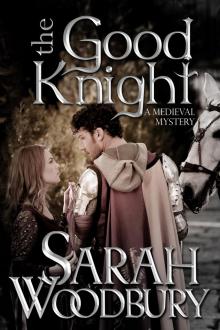 The Good Knight
The Good Knight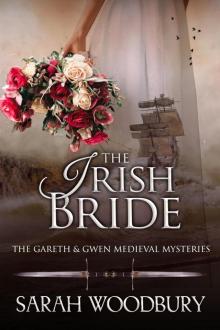 The Irish Bride
The Irish Bride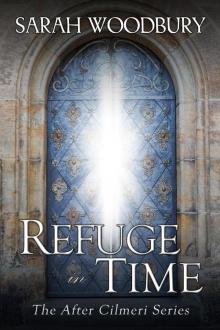 Refuge in Time
Refuge in Time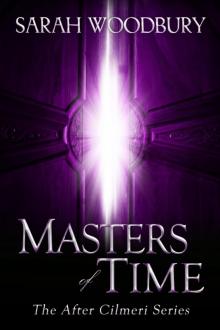 Masters of Time
Masters of Time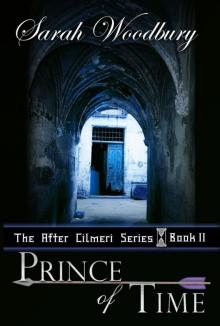 Prince of Time (Book Two in the After Cilmeri series)
Prince of Time (Book Two in the After Cilmeri series)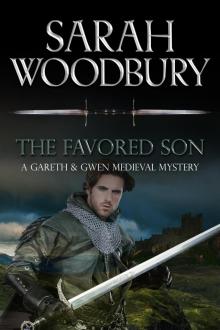 The Favored Son
The Favored Son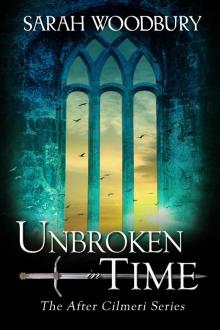 Unbroken in Time
Unbroken in Time![[The Lion of Wales 01.0] Cold My Heart Read online](http://i1.bookreadfree.com/i/03/22/the_lion_of_wales_01_0_cold_my_heart_preview.jpg) [The Lion of Wales 01.0] Cold My Heart
[The Lion of Wales 01.0] Cold My Heart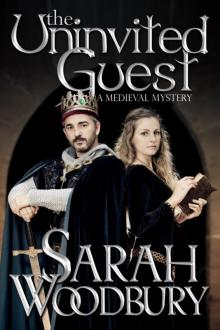 The Uninvited Guest
The Uninvited Guest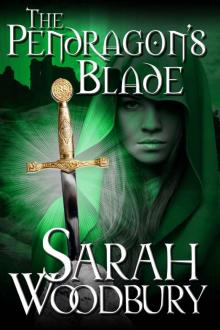 The Pendragon's Blade (The Last Pendragon Saga Book 2)
The Pendragon's Blade (The Last Pendragon Saga Book 2)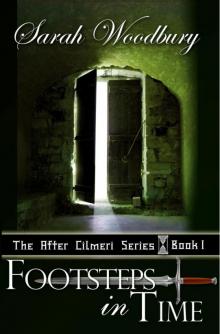 Footsteps in Time
Footsteps in Time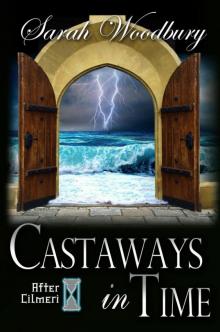 Castaways in Time (The After Cilmeri Series)
Castaways in Time (The After Cilmeri Series)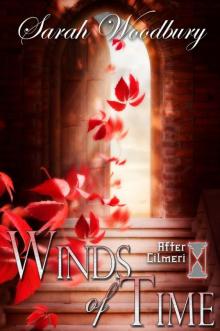 Winds of Time
Winds of Time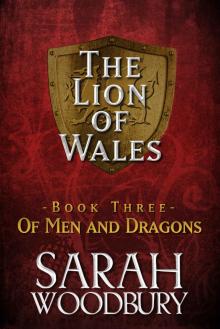 Of Men and Dragons (The Lion of Wales Book 3)
Of Men and Dragons (The Lion of Wales Book 3)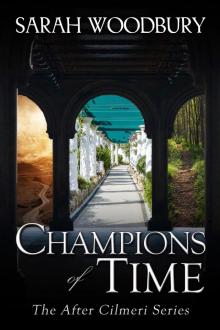 Champions of Time
Champions of Time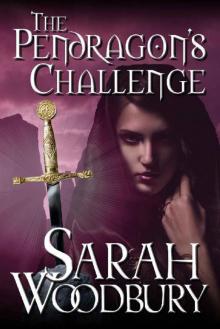 The Pendragon's Challenge (The Last Pendragon Saga Book 7)
The Pendragon's Challenge (The Last Pendragon Saga Book 7)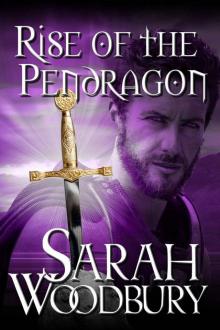 Rise of the Pendragon (The Last Pendragon Saga Book 6)
Rise of the Pendragon (The Last Pendragon Saga Book 6)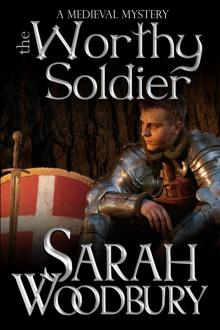 The Worthy Soldier
The Worthy Soldier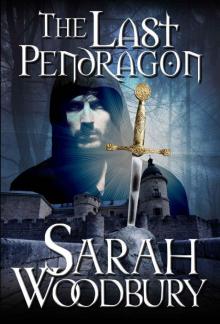 The Last Pendragon (The Last Pendragon Saga Book 1)
The Last Pendragon (The Last Pendragon Saga Book 1)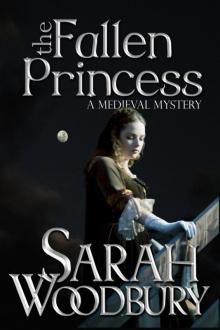 The Fallen Princess
The Fallen Princess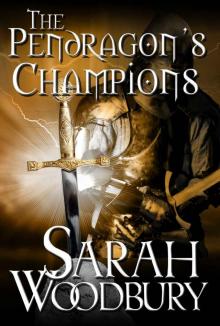 The Pendragon's Champions (The Last Pendragon Saga Book 5)
The Pendragon's Champions (The Last Pendragon Saga Book 5)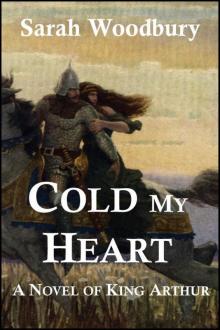 Cold My Heart: A Novel of King Arthur
Cold My Heart: A Novel of King Arthur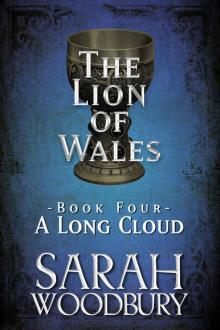 A Long Cloud (The Lion of Wales Book 4)
A Long Cloud (The Lion of Wales Book 4)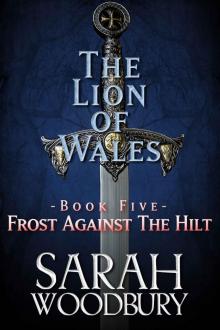 Frost Against the Hilt (The Lion of Wales Book 5)
Frost Against the Hilt (The Lion of Wales Book 5)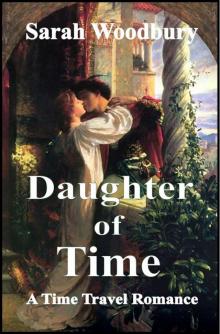 Daughter of Time: A Time Travel Romance
Daughter of Time: A Time Travel Romance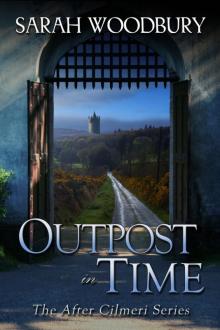 Outpost in Time
Outpost in Time Shades of Time kobo
Shades of Time kobo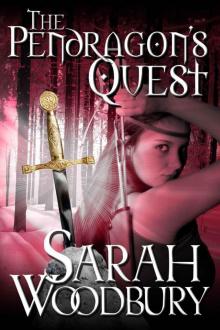 The Pendragon's Quest (The Last Pendragon Saga Book 4)
The Pendragon's Quest (The Last Pendragon Saga Book 4)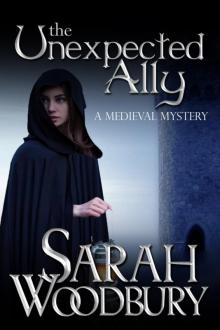 The Unexpected Ally
The Unexpected Ally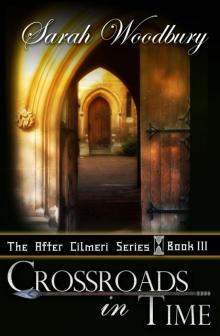 Crossroads in Time (The After Cilmeri Series)
Crossroads in Time (The After Cilmeri Series)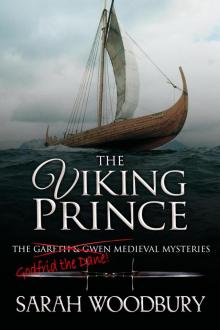 The Viking Prince
The Viking Prince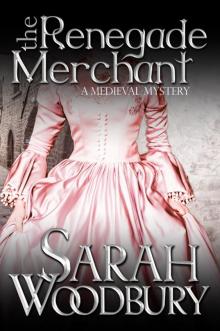 The Renegade Merchant
The Renegade Merchant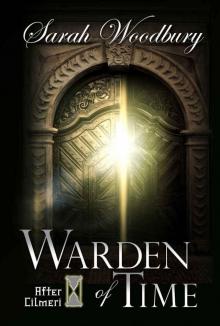 Warden of Time (The After Cilmeri Series Book 8)
Warden of Time (The After Cilmeri Series Book 8)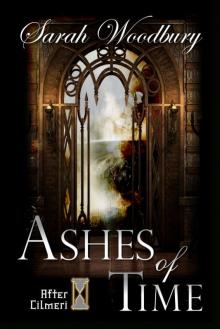 Ashes of Time (The After Cilmeri Series)
Ashes of Time (The After Cilmeri Series)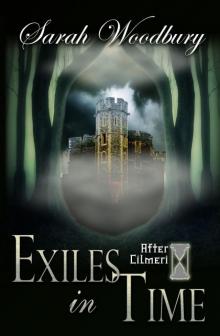 Exiles in Time (The After Cilmeri Series)
Exiles in Time (The After Cilmeri Series)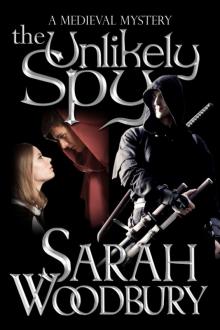 The Unlikely Spy
The Unlikely Spy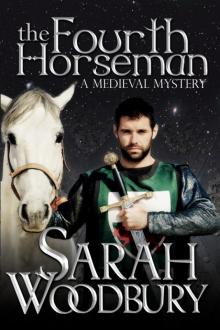 The Fourth Horseman
The Fourth Horseman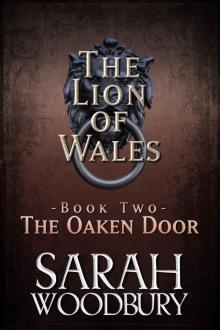 The Oaken Door (The Lion of Wales Book 2)
The Oaken Door (The Lion of Wales Book 2)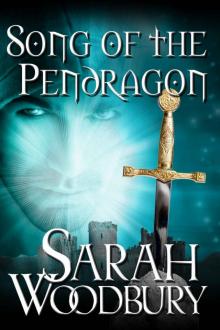 Song of the Pendragon (The Last Pendragon Saga Book 3)
Song of the Pendragon (The Last Pendragon Saga Book 3)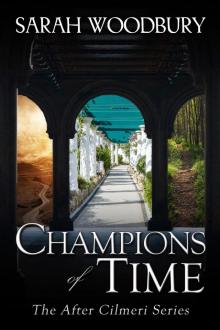 Champions of Time (The After Cilmeri Series, #13)
Champions of Time (The After Cilmeri Series, #13)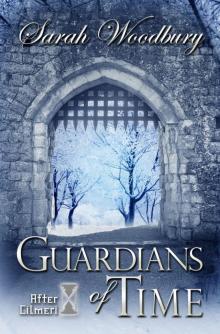 Guardians of Time
Guardians of Time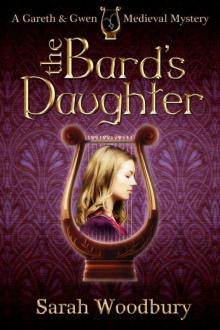 The Bard's Daughter (A Gareth and Gwen Medieval Mystery)
The Bard's Daughter (A Gareth and Gwen Medieval Mystery)